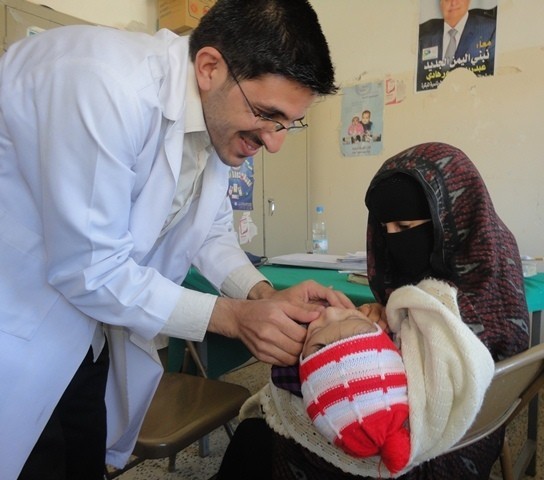You are viewing:
Archived Content
Information released online before January, 2021.
You are viewing:
Information released online before January, 2021.
Note: Content in this archive site is NOT UPDATED, and external links may not function. External links to other Internet sites should not be construed as an endorsement of the views contained therein.
You are entering the 2017-2020 Archive for the
United States Agency for International Development web site.
If you are looking for current information, visit www.usaid.gov.

USAID supports life-saving maternal, child health and family planning services, and a stronger health system that reaches the most vulnerable populations.
Only 50 percent of the health facilities in Yemen are functioning, and these facilities face severe shortages in medicines, equipment, and staff. These gaps especially impact critical services for the most vulnerable women and children. Unmet need for family planning (FP) remains high at 31.7 percent, while only 51.5 percent of women indicate demand for FP is satisfied. Facility stock outs continue with increased duration and frequency. Yemen’s collapsing healthcare system is projected to result in 1,000 maternal deaths per 68,000 pregnant women at risk. Gender based violence has also increased by over 17 percent since the onset of conflict. In addition, the degrading health care system has resulted in vulnerability to and emergence of diseases that can generally be cured or eradicated elsewhere in the world. This ranges from the largest cholera outbreak globally impacting all but one governorate, to the emergence of diphtheria and risk of re-introduction of polio.

Comment
Make a general inquiry or suggest an improvement.